#blackmarkets
Explore tagged Tumblr posts
Text
I need sora and ronin as morally ambiguous metal arm buddies rn
#I wonder how ronin is doing after the merge#Probably running a blackmarket in the crossroads#I have a feeling he's doing good#ninjago#ninjago dragons rising#ninjago dr#Lego ninjago#sora ninjago#ronin ninjago#ninjago sora#ninjago ronin#chaotic's posts
81 notes
·
View notes
Text
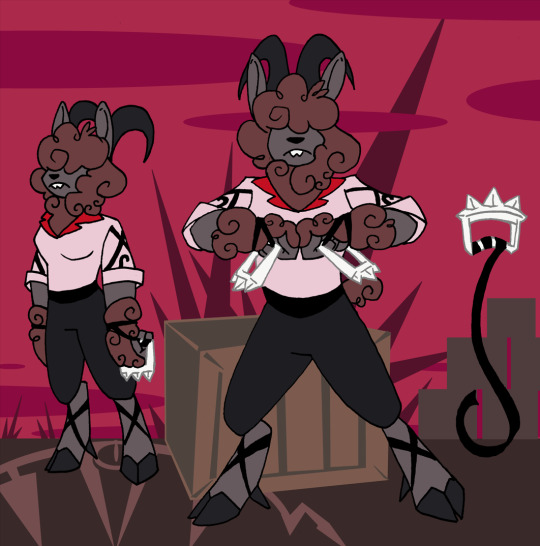
fanart for the fav background character ;m; i give u knuckle duster weapons on a string and actual animal leggies bc you are a sheep (alpaca?) demon person and you deserve them
#hazbin hotel#background character#fanart#alternate character degsign#...#curly#i lov u#also gave a Tail#u are a fluffy butch ram lady lifting crates of blackmarket weapons all day long and u are Good#im sure you're in hell for a reason but#i hope it's going ok working for carmilla#pls don't get killed on screen where i can see it#;m;
31 notes
·
View notes
Text
only bad thing about being in a fandom where one of the characters canonically has wings is the painful lack of classic wingfic. where is my everything's the same but people have bird wings watford au where one day baz notices simon hasn't been grooming his wings bc of an injury to his ribs so he sits on his bed and makes a whole fuss about how "i'm not doing this to be nice, snow, your wings are just a travesty to look at" and then proceeds to carefully and lovingly tidy his feathers in drawn out silence while they both pretend grooming someone else's wings isn't one of the most intimate things you can do for another person. will this heartbreak never end
#i have an old wingfic that never left the zero draft stage and it was suuuper fucking plotty#simon was still the chosen one in it but not in a weird sex magic kinda way like he was just home grown like that so no humdrum#so lucy is alive and he grew up with her and the mage (and they have a dog!) (simon named her ''little simon'' lmfao)#meanwhile baz isn't a vampire but natasha still died when he was five bc ok i don't know how to explain the lore behind this#bc it has to do with a skeevy blackmarket trade involving human wings like it was kinda dark ngl#but the long and short of it is that baz and tasha are kidnapped and tasha is killed keeping baz safe but baz's wings are damaged#pretty severely and so one of them never grows to full size and it leaves him flightless#n e way simon and baz don't get on bc the mage is still the mage and the old families are still the old families#but they are roommates as usual#and half-term their eighth year pitch manor is raided by blackmarket poachers and mordelia is kidnapped and the whole grimm family is#in shambles so baz goes right to simon about it and there's this reverse of the simon-showing-up-at-baz's-door scene#where baz shows up at simon's door a complete WRECK to ask for help getting his sister back#and simon is like. why are you asking ME for help?#and baz is like. bc you're the only one i know who can#and then they fucking steal one of the mage's cars and hit the road [so good right now by fall out boy starts playing]#and then it's just kind of a normal mission fic about them finding mordelia and saving her life and baz falls out a very high window#and simon catches him etc.#i love wingfics so much#sighs wistfully#i think i need to be alone w my gdocu for while#valen and the void
20 notes
·
View notes
Text
Resolve LPG Booking Issues: A Consumer's Guide
Grievance Status for registration number : MPANG/E/2024/0012086Grievance Concerns ToName Of ComplainantMahesh Pratap Singh alias Yogi M. P. SinghDate of Receipt28/11/2024Received By Ministry/DepartmentPetroleum and Natural GasGrievance DescriptionPetroleum and Natural Gas >> LPG/LPG Agency related >> Blackmarketing of LPG refill / Misuse of domestic LPG cylinder Ministry/PSU : Indian Oil…
#Asmita Gas Service#Blackmarketing of LPG refill#business#india#Indian oil corporation limited#IOCL#news#Uttar Pradesh SO I
4 notes
·
View notes
Note
hello!!! i don't know if you're open to OC interactions but I was wondering if your Matvey and my Jack would be friends. ʕ·ᴥ·ʔ
Hi sorry about not answering this for a bit ive been a bit busy (btw I love Jack, he gives off a very devious aura( ̄︶ ̄) ) but to answer your question....
Yes? Matvey comes off very removed and silent compared to Jack's loud personality. Jack would bounce off of Matvey's silent nature repeatedly which would look odd to anyone else. Jack and Matvey are like polar opposites to most people but only because Matvey likes to hide away hoping to drive anyone away from him but once Jack doesn't leave him and is there to stay... well he gets very upfront in Jack's experience with traps, explosives, everything like a quiz and very in their face that would unsettle most people(he doesn't mean to come off as unsettling and doesn't really notice it himself. Kinda like the blue eyed people meme.) Before eventually telling him about his own traps, and explosives after a few days of one-sided silence. Matvey would initially be curious about Jack's inclination towards fire but doesn't bring it up since glass houses and all that, he has his own things too. Though, Matvey would try be helpful in his own way and that burning someone alive isn't the only way to kill someone and to think more towards a silent killer like smoke inhalation. Matvey would look for guidance on his own blueprints and chemical weapons, and traps, places to improve. He takes Jack's opinions very seriously.
Matvey would work in silence while Jack pointed out areas to improve and would like to do the same with Jack if she ever let him look at their own ideas.
They are bad influences to each other in a way, Jack just wants to just kill a hostile with fire for once while Matvey just wants to be allowed to use his chemical weapons, of similar opinions. Jack's very loud and talks back while Matvey just broods in the corner or storms off, they are both brats in their own ways.
Matvey ends up filing for a release of information on Jack's behalf as he feels guilty hiding his identity from Jack who he trusts and considers as a friend. He also just thinks Matthew is the worst fake name ever given. So yes, I do think they would be the best of friends.
I was hoping on doing something more detailed but I take breaks between detailed art due to probable burnout so here's the up to no good destructive blorbos ! I hope you find them just as cute ヽ(´▽`)/
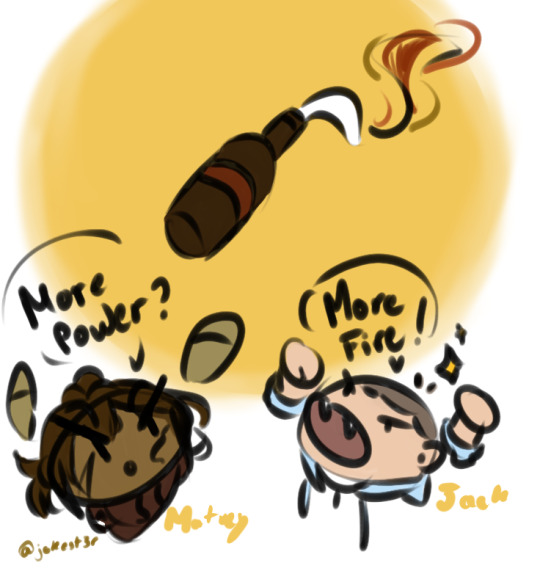
#call of duty#mutuals ocs#oc: jack#house of cards au#cod oc: matvey-lukyan volkov-makarov#oc: matvey-lukyan volkov-makarov#jack reminds me a lot of power from csm but that might just be because i have csm on the brain#they'd be very chaotic to rein in I will say that much#Jack will probably get matvey a bit too amped up#matvey is still confused about the fire but it works#most likely to create a hidden blackmarket on base /j#but seriously i love jack#very mischievous and just as dangerous
7 notes
·
View notes
Text
(( watching this weeks ultra and jotting down 'illegal monster tissue trade' into my plot bunny list
#[ out of circuits ]#(( oh my god remember when they revealed that they were selling belial's dandruff on the alien blackmarket
2 notes
·
View notes
Text
god thomas thinks he's so much smarter than he actually is, and that is sometimes his downfall.
#i'm not saying he's stupid.#he's not.#rewatching s2. and the way he was /so/ convinced that blackmarket salesman wasn't a scam. poor idiot <3#˚ . { headcanon. }
1 note
·
View note
Text


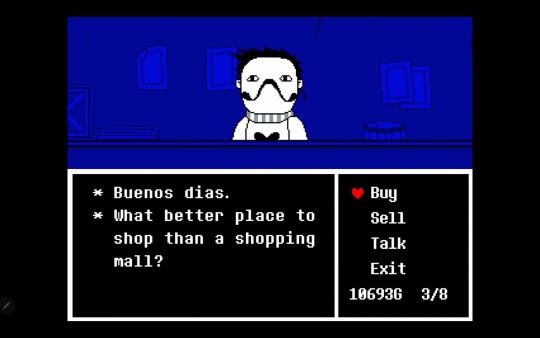
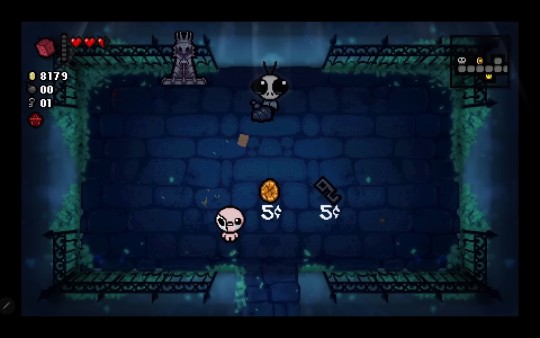
Watch the new Silvagunner video I'm so serious it is AMAZING
9 notes
·
View notes
Text
.
#Just REALLY bothered by the implimentation of the unconverted pet poses on neopets dot com lads#they took something that could have just been a toggle on the customization page and made it into a horrible gatcha game#one that you have to pay REAL MONEY for#that you have to CHECK to see if the color your pet is even painted is there at the time#because it's like a rotation of suits and not just My Pet Is The Color I Worked To Get And Is Now The Art And Pose I Like#I really don't like it#like why'd they have to do it like this#first they get defensive and weird about people selling 1) commissions involving neopets. 2) fanart / fanmerch in general#going so far as to call it Blackmarket#and now they've REALLY botched the ONE thing people have been asking for#but I've seen a lot of people reacting positively to it and I'm like but why#it just feels real scummy#I just want my digital monster game to not feel greasy please. please. @ tnt
2 notes
·
View notes
Text


Galarian Linoone is confident but rude. He initiates conflicts recklessly, not thinking about the safety of others. He can be quite dexterous at evading blows because he easily loses his sense of balance when struck.
Race: Otterfolk Class: Ranger Subclass: Primal Shifter Conclave Location: Thrifty Mega Black Market Alignment: Chaotic Neutral
View the pokedex of all dungeon pokemon by following the link in the menu.
#Galarian Linoone#Otterfolk#Ranger#Primal Shifter Conclave#Chaotic Neutral#blackmarket#underworld#thriftymegamart#pokemon#dnd pokemon#pokemon dnd#fan art#dnd#dungeons and dragons#hero forge#hero forge minis
6 notes
·
View notes
Text
Can openers must be worth more then just about anything else in this world. Like guns/knives, medical supplies, can openers in that order.
#like cans are a bitch to open without one#can openers would save your life#like huge trade commodity#some blackmarket for can openers#the last of us#tlou
6 notes
·
View notes
Text
@ceelphones
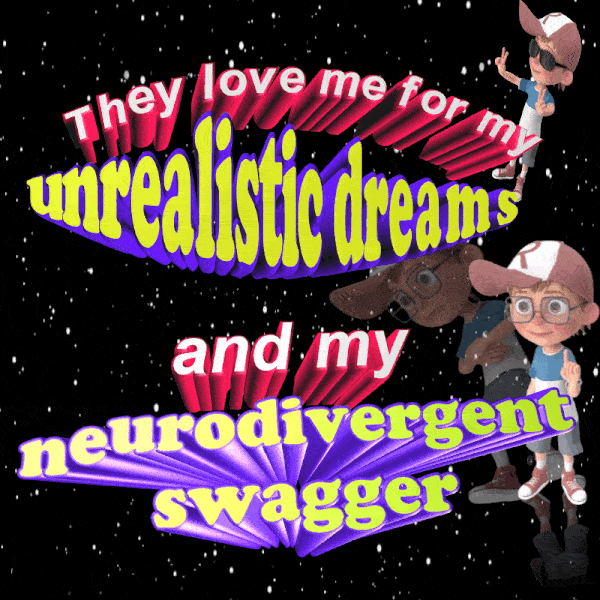
requested by transandgaybutworse
#Love ur brainrots#Xoxo#would be scared if you stop honestly#I would wholeheartedly support you making nukes btw#just spare my dorm room cuz I live there 🥺#Ill donate bodies for ur experiments too yknow#the blackmarket is always open :3
2K notes
·
View notes
Link
#RiceMafia#BlackMarketing#Poverty#Corruption#Crime#Police#News#Bharatpur#UttarPradesh#Agra#GNewsPortal
0 notes
Text
The Convergence of Economic Interests and Drug Trafficking: Lessons from Prohibition and the U.S. War on Drugs
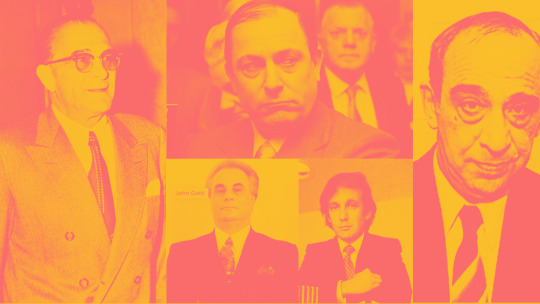
The prohibition of drugs in the United States, a policy widely contested for its social and economic consequences, finds historical parallels in the Prohibition era (1920–1933). During Prohibition, the production, distribution, and sale of alcoholic beverages were banned in the U.S. Like today’s drug prohibition, Prohibition was driven by moral and public health arguments but resulted in a parallel economy of illegal activities and an increase in organized crime. This economic history essay aims to draw parallels between Prohibition and current drug policy, highlighting how prohibition simultaneously benefits large corporations, organized crime, and ultimately shapes global geopolitics and economic structures.
1. Prohibition: A Moratorium and the Growth of the Black Market
Prohibition in the United States was enforced by the passage of the 18th Amendment and the creation of the Volstead Act. Its declared purpose was to improve public health, reduce crime, and boost societal morality by eliminating alcohol consumption. However, the economic effect of Prohibition was the opposite of what its proponents envisioned. Far from eradicating alcohol, the ban fostered the creation of a lucrative black market, managed by mafia groups that saw opportunities to enrich themselves through the illegal sale of alcohol.
Entrepreneurs of the illegal market, such as Al Capone, quickly amassed fortunes by exploiting the continuous demand for alcohol, demonstrating that the criminalization of widely demanded products tends to create highly profitable underground markets. The rise of organized crime, the bribery of politicians and law enforcement, and the violence associated with territorial control among gangs were some of the most visible consequences. The black market became an essential part of the parallel economy, moving significant amounts of money and directly influencing politics.
Similarly, the international drug trade that flourished under drug prohibition has replicated many patterns established during Prohibition. Today, drug cartels operate in ways comparable to the organized crime bosses of the 1920s, profiting immensely from prohibition while perpetuating networks of corruption, violence, and political instability.
2. The Dual Benefit: Corporations and Organized Crime
During Prohibition, large corporations were not directly involved in the illegal alcohol trade, but other sectors of the economy benefited from the ban. A notable example was the pharmaceutical industry, which retained exclusive access to alcohol for medicinal purposes. Medicinal alcohol, legalized under medical supervision, was widely sold in pharmacies and distributed by doctors who prescribed "alcohol treatments" for a range of ailments.
Thus, the pharmaceutical industry found a way to profit from Prohibition by controlling access to a still-demanded substance that was now heavily regulated. The monopoly these companies held on medicinal alcohol offered them a chance to profit through exclusivity at a time when recreational alcohol consumption was outlawed.
This model is clearly reflected in today’s drug policy. The prohibition of recreational drugs, such as cannabis or even cocaine derivatives, provides large pharmaceutical corporations with a monopoly over controlled substances that might otherwise be produced more cheaply and widely. Through patents and stringent regulatory processes, these companies dominate the market for legal treatments for pain, anxiety, and other conditions, often utilizing opioid derivatives and anxiolytics that are sometimes more dangerous and addictive than the recreational drugs targeted by legislation.
This convergence of interests—between corporations that benefit from prohibition and criminal organizations that profit from the black market—creates a complex economic structure resistant to reform, as both sides have economic incentives to maintain the status quo.
3. Drug Trafficking and the Control of the Drug Market
In the absence of government regulation and competition in a legal market, international drug trafficking emerged as the primary supplier of recreational drugs to the United States and other global markets. Prohibition creates artificial barriers that drive up the prices of these substances, generating disproportionately high profit margins for those who control supply.
In the case of cocaine trafficking, for instance, growing coca in Latin American countries such as Colombia and Peru is extremely inexpensive. However, prohibition and the risks associated with international trafficking inflate the price of cocaine in consumer markets like the U.S. and Europe. Just like the crime bosses during Prohibition, drug cartel leaders have become powerful figures, controlling territories and wielding influence over local politicians and law enforcement.
The economic model of drug trafficking is, therefore, similar to that of organized crime during Prohibition, with a lucrative parallel economy based on illegality. Violence and territorial control are essential to securing market access and ensuring the continuity of illegal operations. Moreover, just like in the 1920s, political corruption and the complicity of local authorities are key elements that facilitate the persistence of these activities.
4. Trump, Drug Prohibition, and Economic Interests
Amidst this scenario, Donald Trump’s position against the legalization of drugs is a clear example of how the prohibition economy benefits both large corporations and criminal organizations. Although Trump has adopted tough rhetoric on combating drug trafficking and illegal drugs, his resistance to legalization or decriminalization policies reflects deeper economic interests.
On the one hand, Trump’s stance protects the profits of large pharmaceutical corporations, which rely on the exclusivity of controlled substances. The legalization of drugs like cannabis could threaten these profits by opening the market to new competitors who might provide natural, more affordable alternatives. On the other hand, by keeping the black market intact, his "law and order" policy ensures that drug trafficking profits remain high, much like the profits of organized crime during Prohibition.
The economic logic behind these policies suggests a "double game" in which the interests of different groups are protected at the expense of a more effective and socially beneficial solution. Drug law reform, focusing on legalization and regulation, has the potential to drastically reduce drug-related violence, dismantle corruption networks, and open the market to new businesses that could provide safer and more affordable alternatives for consumers.
Conclusion
Prohibition and the current drug ban share many similarities in terms of their economic and social consequences. Both periods witnessed the rise of lucrative black markets, the strengthening of organized crime, and the protection of large corporate interests that control legal markets. Prohibition, in both cases, creates artificial barriers that benefit those who hold monopolies over controlled substances, whether in the pharmaceutical industry or in drug trafficking.
Donald Trump’s stance against drug legalization, far from being a mere reflection of moral or public health concerns, can be seen as a manifestation of broader economic interests. Both large corporations and international drug traffickers benefit from maintaining prohibition, creating a vicious cycle that resists reform and perpetuates a system of violence, corruption, and inequality.
The economic history of Prohibition offers valuable lessons for today’s debate on drug legalization. Just as the repeal of Prohibition reduced the power of organized crime and created a regulated market for alcohol, drug policy reform has the potential to weaken drug cartels and create a legal market that benefits society as a whole.
#EconomicHistory#DrugProhibition#ProhibitionEra#DrugPolicy#OrganizedCrime#BlackMarket#PharmaceuticalIndustry#DrugTrafficking#LegalizationDebate#PublicHealth#EconomicInterests#SocialImpact#CriminalEconomy#TrumpAndDrugs#DrugWar#HistoricalParallels#PolicyReform#CriminalJustice#GlobalEconomics#RegulatoryImpact
0 notes
Text
Pawpaw matcha latte 🌿

#I made#pawpaw#my friend drove an hour to some guy off Facebook selling these pawpaws lmao#blackmarket pawpaw
1 note
·
View note
Text
in a world where the right won
where tucker carlson and ben shapiro are bromancing it up in the white house as pres and vp
where gay marriage was outlawed and people are rewarded for outing children
there is a thriving black market for hormones
now testosterone is as likely to me found in syringes at the back of alleys as HIV and cocaine
i am Avery McGay, hormone dealer extraordinaire, best jaywalker on the lower east side, and im not like other girls
i have a penis

#gay shit#transgender pride#transgirl#avery mcgay is a name i came up with for the steriotypical trans girl like 2 months ago#rply#sgq#alternate reality#imma steal ur hormones bitch#lgbt#transgender#estrogen is the new drug#blackmarket hormones#funfact i actually have no idea how to tag shit#so yeah#tw swearing#tw fuck#twitter
49K notes
·
View notes